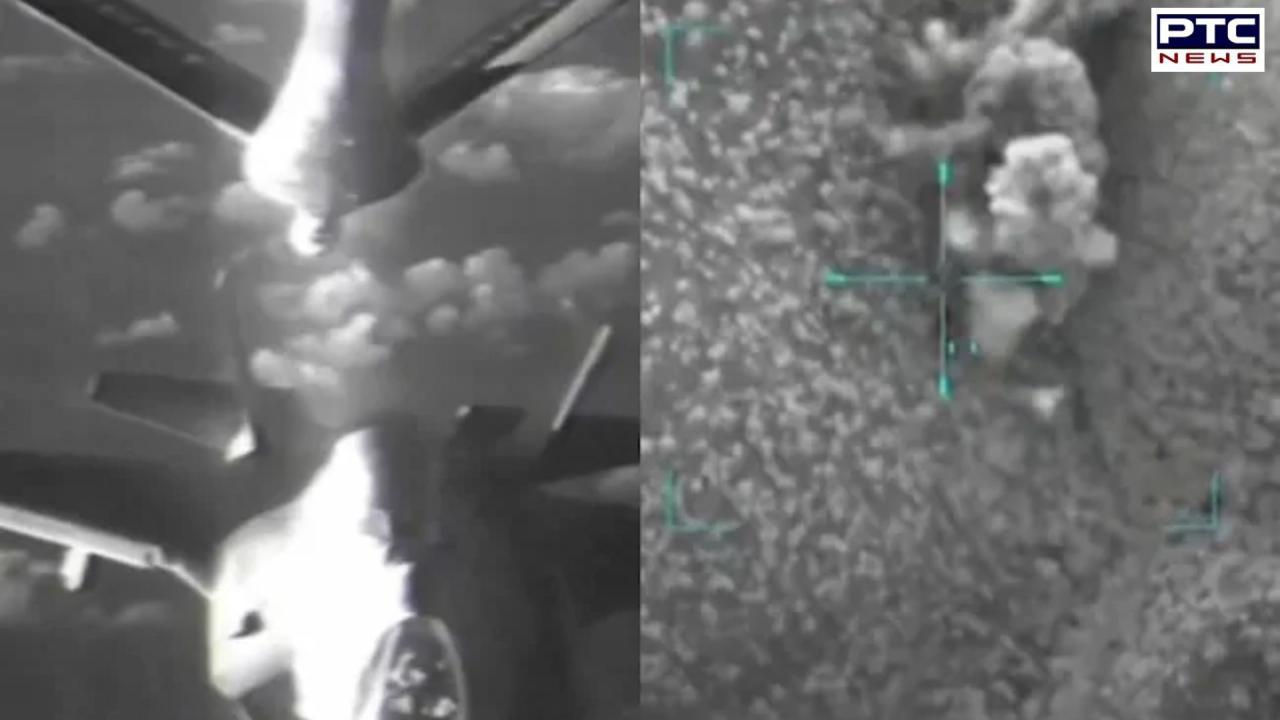Mid-air refuel and precision strikes: The Israeli air forces tactical hit on Hezbollah
Commencing at 5 am local time, the strikes were a component of a military operation designed to counter the increasing danger posed by Hezbollah on Israel's northern frontier.

PTC News Desk: On Sunday, the Israeli Air Force (IAF) launched a series of precision strikes targeting Hezbollah positions in Lebanon, aiming to thwart what Israeli officials described as an imminent large-scale attack. The operation commenced at 5 a.m. local time and was part of a broader military campaign designed to counteract Hezbollah's increasing threat along Israel's northern border.
The Israel Defense Forces (IDF) released a video of the operation, emphasizing that the strikes targeted Hezbollah's terrorist infrastructure, which was reportedly intended for use against Israeli civilians and military forces. "Our operation in Lebanon targeted the terrorist infrastructure Hezbollah planned to use against us, protecting Israeli families and homes," the IDF statement read.
Israeli Prime Minister Benjamin Netanyahu, speaking to his cabinet later in the day, underscored that the military campaign was ongoing. "We are striking Hezbollah with surprising, crushing blows," Netanyahu declared. "This is another step towards changing the situation in the north and safely returning our residents to their homes. And, I repeat, this is not the final word."
Netanyahu detailed the success of the operation, noting that thousands of short-range rockets, which posed a threat to civilians and military personnel in the Galilee region, had been destroyed. He also confirmed that the IDF had intercepted all drones launched by Hezbollah at a strategic target in central Israel, which Israeli media reported as the Mossad headquarters.
Also Read: Congress takes steps to resolve seat-sharing disputes with National Conference
The operation involved over 100 Israeli warplanes, which carried out preemptive strikes on thousands of Hezbollah missile launchers located across southern Lebanon. These actions were based on "precise intelligence" indicating that Hezbollah was preparing to launch a significant missile barrage at northern Israel and conduct drone attacks on key intelligence centers.
Following the strikes, Israel declared a 48-hour state of emergency and temporarily closed its main airport, resulting in the cancellation of several flights. Despite Hezbollah's retaliation, which included firing over 300 projectiles into Israeli territory, the damage was reported to be minimal. Israeli officials confirmed the death of one soldier due to falling debris, while three fatalities were reported in Lebanon.
Diplomatic efforts to de-escalate the broader regional conflict continued. Negotiations in Cairo, aimed at establishing a ceasefire between Israel and the Palestinian group Hamas in Gaza, faced difficulties. Hamas accused Israel of imposing new conditions and extending the negotiations, which have been a point of contention in the peace process.
Also Read: Israel and Hamas unable to reach ceasefire agreement in Cairo; negotiations to continue


